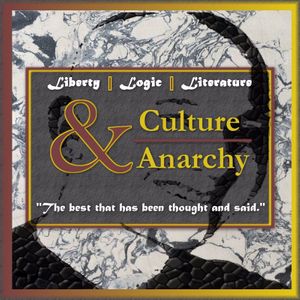19. A Rationalist Critique of Deconstruction: Part 2 (Structuralism's "Event")
The Culture & Anarchy Podcast - En podcast af The Culture & Anarchy Podcast: Liberty|Logic|Lit

Kategorier:
A Rationalist Critique of Deconstruction (Part 2): Structuralism's "Event" In order to understand Deconstruction, one must first understand Structuralism. Structuralism was a rationalist theory of linguistics in 1906-1911 which bypassed traditional grammar (logic-based, a priori grammar) in order to begin from a macrolinguistic premise. Instead of studying the manner in which individuals understand and utilize grammar as rational actors, Ferdinand de Saussure (Structuralism's godfather)set out to take on Language independently of its speakers and hearers (or, writers and readers). Like the macroeconomist, who deals with historical aggregates of the market and its outputs while pretending that the future is bound by the past and that "patterns" are a substitute for microeconomic rationalism and Free Markets, where lump sums and historical exchange relations are treated as constants, Saussure was studying differentiation in Language from the standpoint of analyzing the history of language's bygone uses as if this--more than the active use by individuals utilizing a priori schematics deduced from human action (the Subject-Predicate Standard)--were the key to understanding Language. In this section, I highlight some of the early failings of Saussure's method, especially in his monetary analogy, which compares language to a medium of exchange (a money). In this, we see where Saussure confused values with prices like the old Classical Economists (Smith, Ricardo, Marx, et. al.). Also, by understanding the principle of binary opposition, we will come to understand how Deconstruction was able to turn the tables upon Saussure's philosophy. --- Support this podcast: https://anchor.fm/culture-anarchy/support
